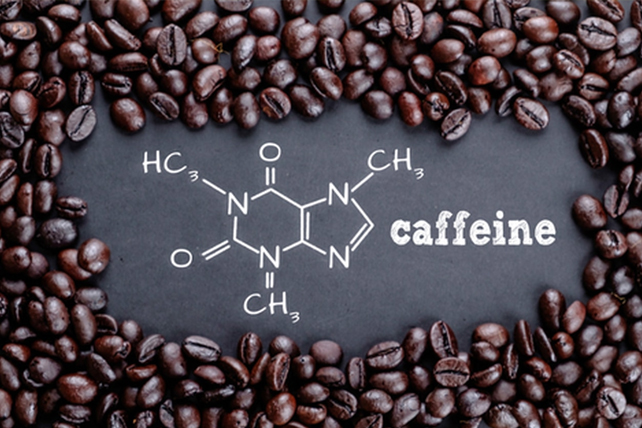is caffein good for body? Caffeine is a central nervous system stimulant that affects the body and mood. It can help to improve your alertness and energy levels, and even boost your metabolism. But caffeine also comes with some health risks if consumed in large amounts or consumed over time.
is caffein good for body
Caffeine is a powerful stimulant that can be found naturally in certain foods and beverages, as well as being added to others. Caffeine is often consumed to temporarily boost alertness, provide energy, and improve mental and physical performance.
is caffein good for body? Caffeine is a naturally occurring substance found in coffee and many other foods, including chocolate. It acts as a stimulant in the human body.
Caffeine is a psychoactive substance and drug of abuse. It’s used to enhance mental alertness, improve physical performance, and help treat medical conditions.
is caffein good for body? Caffeine does have some health benefits, but there are also negative side effects. A drinker who consumes too much caffeine might experience headaches, insomnia, irritability and an upset stomach. Also, people who take medication for high blood pressure or anxiety should avoid caffeine because it can aggravate those conditions and make them worse.
is caffein good for body? Caffeine is a drug that stimulates the central nervous system, which includes the brain and spinal cord. In addition to increasing alertness and improving mood, caffeine also provides energy during physical activities.
is caffein good for body? Caffeine is the most widely used drug in the world. Coffee contains an average of 100 – 200 mg caffeine per serving, while tea can contain 30 – 200 mg.
is caffein good for body? Caffeine is a naturally occurring stimulant found in tea, coffee, kola nut, cocoa beans and guarana. Ounce for ounce caffeine has more stimulating effects than any other drug except for amphetamines. Its effects are similar to those of adrenaline, releasing a burst of energy by stimulating the central nervous system.
where in the body does caffeine act

Caffeine has the ability to affect multiple areas of the body. When caffeine is ingested, it acts directly on the central nervous system and adrenal medulla and indirectly on other tissues in the body–such as skeletal muscle, adipose tissue and liver–where it alters metabolism.
Read More : How to lose weight
Caffeine acts as a stimulant in humans, although it also acts as a sedative in some animals. It is commonly found in many foods and medications.
In humans, caffeine acts primarily as an antagonist to the adenosine receptor in the central nervous system (CNS). Adenosine is a purine nucleoside that occurs naturally in the brain and plays an important role in regulating neurological function. When adenosine binds to its receptors, it inhibits the release of glutamate (an excitatory neurotransmitter) and decreases neuronal firing rate.
is caffein good for body? In the body, caffeine acts on certain receptors, where it is known to stimulate the central nervous system and slow down the action of adenosine, a neurotransmitter. Caffeine also increases blood flow and works as a diuretic.
Caffeine acts on different parts of the body, depending on how it is consumed. When you drink coffee or any other type of caffeinated beverage, it enters your blood through the lining of your mouth, throat and stomach walls. The caffeine travels to your liver and kidneys where it blocks adenosine receptors. These receptors are responsible for sending signals to the brain that cause fatigue and sleepiness.
Caffeine acts on the central nervous system and can also have mild diuretic effects. Caffeine is transported into the body and then into the brain where it binds to adenosine receptors causing increased activity of adenylate cyclase. This results in the formation of cyclic AMP, which activates protein kinase A and causes an increase in the intracellular concentration of calcium ions inside cells
what is caffeine good for
is caffein good for body? Caffeine has a ton of health benefits. It helps boost concentration and improve mental focus, can speed up your metabolism, increase energy levels and strength, prevents muscle fatigue, fight certain cancers, reduce heart disease and risk for stroke and much more.
Caffeine helps to elevate the mood, increase productivity and improve athletic performance.
Caffeine is a natural stimulant found in plants that affects the central nervous system. It can be consumed in foods or beverages, usually coffee and tea.
Caffeine has been found to be effective in reducing drowsiness and improving alertness, both during long-term use and 4 hours after taking it.
is caffein good for body? Many people wonder what is caffeine good for, and the answer is more than you might realize. In addition to being a stimulant, caffeine can also be used to help people with insomnia and those suffering from headaches and other conditions.
can caffeine be good for you

Caffeine can be consumed from a variety of natural sources such as tea, coffee, or some energy drinks. But can it be good for you?
Caffeine can be good for you, but only if it is consumed in moderation. Excessive amounts of caffeine can lead to dehydration and, eventually, significant health concerns.
is caffein good for body? Caffeine is a stimulant that can energize you and help with mental alertness. It can also boost your metabolism, so it’s usually used as part of a weight-loss plan. But too much caffeine can cause jitteriness, headaches, fatigue and sleep problems.
is caffein good for body? Caffeine does have the potential to improve memory and cognition, in addition to boosting your endurance levels because it increases the body’s energy levels. Caffeine can also help to reduce post-exercise muscle pain. However, too much caffeine can affect your sleep and stress levels as well as produce unpleasant side effects like jitters and heart palpitations.
Can caffeine be good for you? The short answer is yes. The long answer is: it depends on the circumstances. Caffeine can be dangerous, but it’s generally fine in moderation. How much caffeine is healthy depends on how much caffeine you’re used to having, and how much you’re taking.
is caffein good for body? Yes, caffeine can be good for you. Caffeine is a mild stimulant and has been used for centuries as a stimulant to boost alertness and improve energy levels. Because it’s also a diuretic that increases urination and decreases water retention, many people claim that it can also aid weight loss efforts by helping them shed excess fluid.
can caffeine raise your body temperature

Yes, caffeine can raise your body temperature. Whether or not it’s enough to induce sweating depends on the amount of caffeine consumed and your susceptibility to tolerance.
Caffeine raises the body temperature because it is a stimulant and it increases metabolism. The fact that it can cause you to sweat and become dehydrated exacerbates the situation.
is caffein good for body? Caffeine is a stimulant that has been linked to increased body temperature, though a medical journal concluded that in order for this to happen you’d have to drink 200 cups of coffee in one sitting. So basically, no.
Drinking caffeinated beverages too early in the day may make it hard for you to fall asleep at night, since caffeine is a stimulant. If this is happening, try drinking your coffee later in the day.
Yes, caffeine can raise your body temperature and make you warmer. This effect is most pronounced in people with a low tolerance for caffeine and those who have recently consumed it.
is caffein good for body? Caffeine can raise your body temperature because caffeine is a stimulant. Caffeine stimulates the central nervous system, which is why it makes you feel more awake and alert.
is it good to have caffeine before a workout

It is good to have caffeine before you workout depending on what time of day you are going to exercise. The main reason that most people drink coffee is to help them stay awake, and in the morning it will make it easier for you to get up and get going.
Caffeine is a stimulant that can have different effects on you, depending on your body weight and fitness level. It is commonly believed that caffeine should be avoided prior to workouts because it has diuretic properties. However, the benefits of consuming caffeine before a workout outweigh any possible side effects.
is caffein good for body? Caffeine is a stimulant that can improve performance and endurance, but it also has some side effects that may make caffeine in the morning not the best idea before a long session at the gym. The reasoning behind this is the fact that caffeine makes you excrete more water than normal through urination, which might be counteractive to your goal of rehydrating yourself after a hard workout.
Do not drink caffeinated beverages and eat sugary snacks before a workout. Your body needs to be fully hydrated when you hit the gym. And, it’s always a good idea to have an energy-rich snack—such as a banana—in the middle of your workout for extra energy and focus.
is caffeine bad for the body

Caffeine is a stimulant that’s found in coffee, tea and several soft drinks. Although there is some evidence that caffeine can raise blood pressure and interfere with absorption of iron, these effects may not apply to every person. Researchers are still studying whether caffeine is bad for the body or good.
Caffeine can have adverse effects on the body if consumed in excess. Caffeine’s effects are best known for being stimulatory, and people often notice they feel more energized after consuming caffeine. Consuming too much caffeine, however, can cause physical symptoms such as nausea, anxiety, insomnia and even heart palpitations.
Caffeine is acidic and can lower your body’s alkaline balance, which is essential for maintaining good health. Drinking more than 300 mg of caffeine per day has been linked to heart disease and high blood pressure, as well as increased risk of miscarriage or stillbirth in pregnant women.
Caffeine does not have a negative effect on your body. It’s a stimulant, not an intoxicant, so you don’t get intoxicated or high from it (the only way to get caffeine into your bloodstream is through consumption).






More Stories
Protein on a Budget: Best Affordable Drinks in 2025
Go Green: Top-Rated Plant-Based Protein Drinks
Arthroscopy Implants Then and Now: A Journey Through Innovation